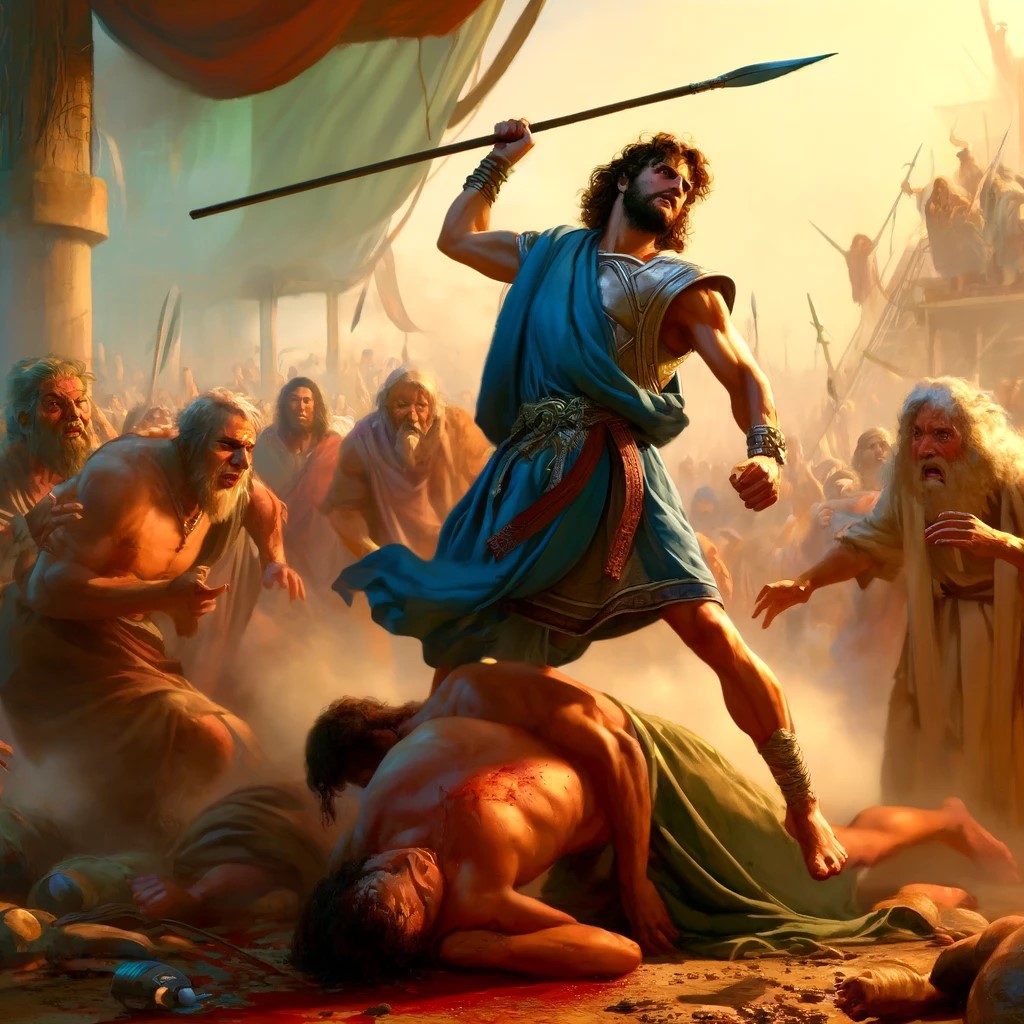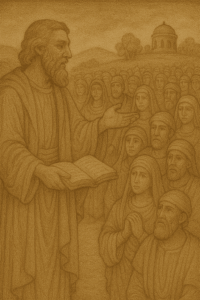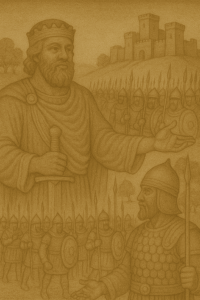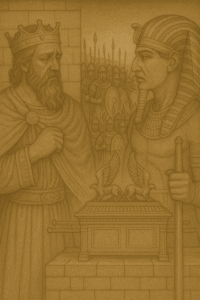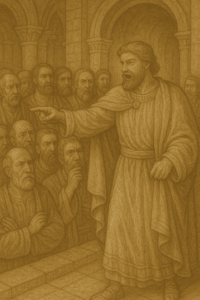Introduction.
Numbers 25 recounts an incident involving Israelite infidelity to God through idolatry and immorality with the Moabite women, leading to severe divine retribution. This chapter highlights the zeal of Phinehas, a priest who acts decisively to halt God’s wrath against the Israelites. By exploring this event, we gain insights into the nature of zeal, the consequences of sin, and the requirements of covenant fidelity.
The sin at Peor.
The Israelites, camped at Shittim, begin to engage in idolatry and sexual immorality with Moabite women, who invite them to the sacrifices of their gods. The Israelites’ participation in these rites provokes God’s anger, resulting in a plague that swiftly brings about deadly consequences. This episode starkly illustrates the dangers of syncretism and the serious repercussions of turning away from divine commandments.
Phinehas’ intervention.
Amidst the unfolding tragedy, Phinehas, the grandson of Aaron, stands out by taking dramatic action. When an Israelite man brings a Midianite woman into the camp in sight of Moses and the weeping congregation, Phinehas kills them both with a spear, an act that stops the plague. His action is not merely violent—it is a profound expression of zeal for God’s holiness and a desperate measure to restore covenant loyalty among the people.
Divine response and covenant of peace.
God responds to Phinehas’ act by stopping the plague, which had killed 24,000 people, and making a covenant of peace with him, granting his family a perpetual priesthood. This covenant rewards Phinehas’ zeal and underscores the importance of leaders who are committed to upholding God’s standards.
Lessons for today.
– The importance of zeal in leadership: Phinehas’ example teaches the importance of zeal in leadership—zeal that is directed towards upholding divine principles and protecting the community’s spiritual welfare.
– Consequences of sin: The severe consequences faced by the Israelites serve as a stark reminder of the seriousness with which God views covenant fidelity and moral purity.
– Divine mercy and justice: Even in judgment, God’s mercy prevails, as seen in the cessation of the plague following Phinehas’ intervention, highlighting the balance between divine justice and mercy.
Conclusion.
Numbers 25 is a sobering chapter that calls us to reflect on our own commitment to God’s commands. It challenges us to consider how we might act with righteousness and zeal in our contexts to uphold spiritual integrity and covenant loyalty.
Reflection.
Consider the areas in your life where you may need to demonstrate more zeal for God’s ways. How can you actively work to uphold spiritual and moral integrity in your community?
